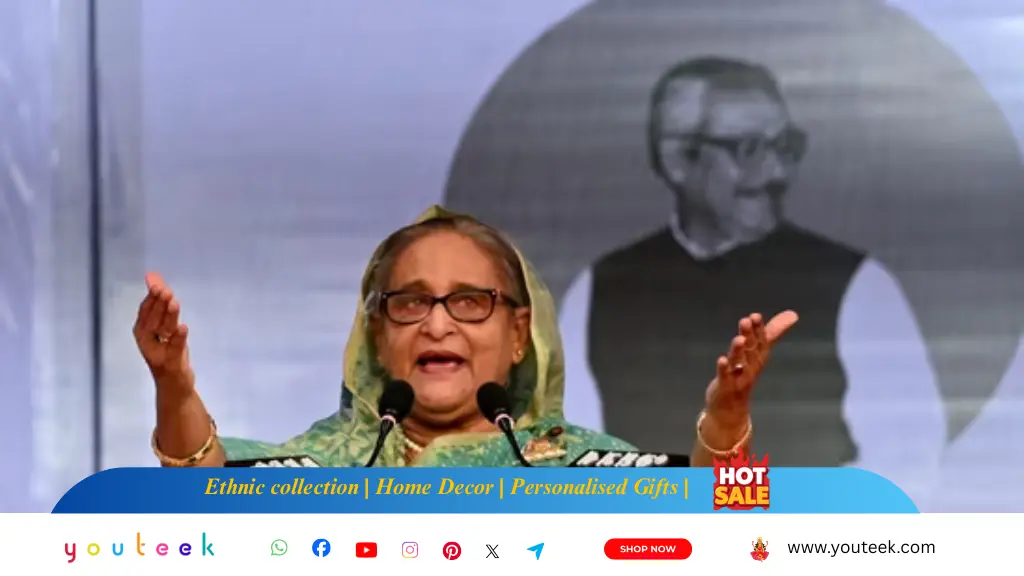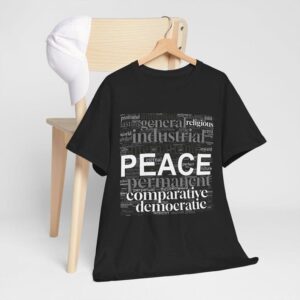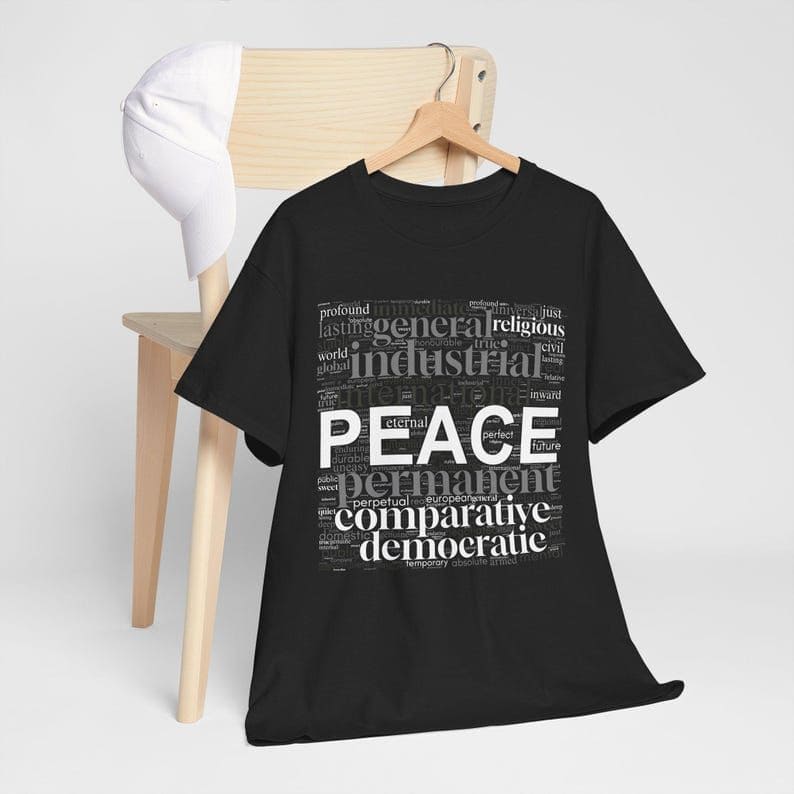Subtotal: ₹1,398.00

Global Divide: UN ‘Regrets’ Death Penalty in **Sheikh Hasina Verdict** as Yunus Hails Justice
⚖️ Global Divide: UN ‘Regrets’ Death Penalty in **Sheikh Hasina Verdict** as Yunus Hails Justice
The conviction of former Bangladeshi Prime Minister **Sheikh Hasina** has immediately fractured global opinion, highlighting a fundamental split between human rights principles and political accountability. On one side, the **United Nations (UN)** voiced profound **”regret”** over the death penalty, upholding a crucial humanitarian red line. On the other, Nobel Laureate **Muhammad Yunus**, now the nation’s Chief Adviser, celebrated the verdict as a decisive win for accountability, stating plainly that “no one, regardless of power, is above the law.” This dramatic divergence—one side focusing on non-negotiable principle, the other on political redress—forces us to confront the core truth of the matter: Can we trust a legal victory when its moral integrity is instantly challenged by global human rights bodies? The controversy surrounding the **Sheikh Hasina Verdict** demands that we ask whether a verdict is truly just if its application is viewed as anything less than universal. **Justice must be universal, not selective.** This is a global test of whether high-stakes verdicts can satisfy both the demand for political accountability and the non-negotiable standards of human rights.🔗 Table of Contents (Click to Navigate)
The UN’s Principled Stance: Opposing Capital Punishment The Validation of Yunus: A Victory for Accountability The Procedural Dilemma: Was the Trial Selective? Frequently Asked Questions (FAQs) Conclusion: The Enduring Question of PrincipleThe UN’s Principled Stance: Opposing Capital Punishment
The reaction from the **United Nations Office of the High Commissioner for Human Rights (OHCHR)** was swift and pointed. Crucially, the UN’s statement did not challenge the underlying conviction for crimes against humanity, but focused its authority on the severity of the sentence itself. A spokesperson reiterated the UN’s firm opposition to the death penalty in **all circumstances**. This is a vital distinction. By targeting the death sentence, the UN ensures its humanitarian objection remains universal, applying to every state and every convicted individual, regardless of their political profile or the gravity of their crime. The fact that the trial was conducted in absentia, as noted by the OHCHR, made these international standards of due process and humane punishment “particularly vital.” This unwavering position reinforces the thematic constraint that **Justice must be universal, not selective**—it must protect the non-negotiable right to life, even for a convicted former leader.The Validation of Yunus: A Victory for Accountability
In sharp contrast to the UN’s measured tone, **Dr. Muhammad Yunus**—who now heads Bangladesh’s interim government—publicly welcomed the ruling. His statement was framed as a long-awaited moment of redress for the victims of the deadly 2024 student uprising. For Yunus, the **Sheikh Hasina Verdict** represents the judicial system finally confronting the powerful, affirming that “no one is above the law.” For many in the opposition, this verdict is seen as a necessary correction, dismantling a long-standing system where political elites enjoyed impunity. Their interpretation of the case passionately champions the breakdown of **selective justice** that had long protected the powerful. However, the celebratory atmosphere from political rivals, while understandable, inevitably complicates the perception of judicial impartiality, fueling the claims that the conviction is politically motivated.The Procedural Dilemma: Was the Trial Selective?
The clash between the UN’s principled humanitarianism and the interim government’s political validation exposes the deep fault lines in applying the law to former heads of state. The central dilemma here is not whether accountability is needed, but whether the process used to deliver it was unimpeachably fair. As Hasina denounced the verdict as “biased and politically motivated,” the question of due process became a global concern. For this verdict to serve as a beacon of true justice, it must stand up to the most rigorous international scrutiny, validating that **Justice must be universal, not selective**. The court must demonstrate that its findings were based solely on objective evidence of crimes against humanity, independent of the years of political rivalry that defined Hasina’s relationship with figures like Yunus. Anything less risks confirming the suspicion that the legal system was used as a tool for political score-settling, ultimately diminishing the ethical victory for the victims.Frequently Asked Questions (FAQs)
What was the specific charge against Sheikh Hasina?
Sheikh Hasina was convicted by the International Crimes Tribunal (ICT) in Bangladesh on charges of **crimes against humanity**. This was linked to the deadly use of force and failure to prevent atrocities during the student-led uprising that ultimately forced her from power in 2024.Why did the UN “regret” the verdict if it supported justice for victims?
The UN’s human rights office welcomed the fact that perpetrators were being held accountable, describing the verdict as an “important moment for victims.” However, it issued a strong statement regretting the imposition of the **death penalty**, as the UN fundamentally opposes capital punishment in all circumstances, regardless of the conviction.Conclusion: The Enduring Question of Principle
The fallout from the **Sheikh Hasina Verdict** has become more than just a domestic legal event; it is a profound dilemma for the global community. The immediate reaction highlights an essential trade-off: The political goal of accountability achieved by the domestic court clashes directly with the non-negotiable ethical standard championed by the United Nations. For this verdict to secure a place in history as a true triumph of the rule of law, it must ultimately satisfy both demands. It must successfully prosecute the use of lethal force against citizens, while simultaneously demonstrating respect for the human rights standards of the global community. If the ultimate focus remains fixed only on the political victory, the verdict risks sacrificing its moral high ground, leaving the uncomfortable question unanswered: Was this truly **universal justice**, or a selective victory achieved at too high a cost?Appeal: She can appeal the verdict to the Appellate Division of the Supreme Court of Bangladesh within 30 days.
Surrender Requirement: Since she was sentenced in absentia, legal experts suggest she may need to surrender or be arrested before her appeal is heard.
Presidential Pardon: She also has the constitutional right to seek a pardon from the President.
The disagreement centers on the conflict between political justice and human rights:
Muhammad Yunus: Supports the verdict as a necessary act of political accountability, confirming that powerful figures are not above the law.
United Nations (OHCHR): Regrets the use of the death penalty in all circumstances, as it violates universal human rights standards, regardless of the crime or the person's status.
-
-
-
The Return of the Icon: The Classic Graphic Superman T-shirt is Still the Ultimate Statement Tee
MenRated 0 out of 5₹699.00₹1,100.00 -
Peacemaker T-shirt 2025 – Classic Fit, Bold Peace Design, Buy Online
TshirtRated 0 out of 5₹699.00₹1,000.00 -
-
Buy Allergic to Stupid People T-shirt 2026 – White Sarcasm Edition
MenRated 0 out of 5₹699.00₹1,000.00


 Buy Allergic to Stupid People T-shirt 2026 – White Sarcasm Edition
Buy Allergic to Stupid People T-shirt 2026 – White Sarcasm Edition  Exclusive Peacemaker T-shirt 2025 – Printed Cotton Tee
Exclusive Peacemaker T-shirt 2025 – Printed Cotton Tee 




